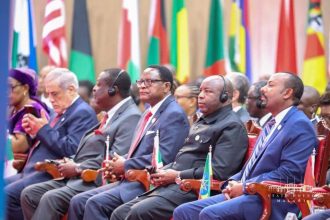World bank wants more women in procurement
The World Bank has urged Malawi and other developing countries to implement policies that promote women’s participation in national procurement systems and ensure equal pay for women to boost their opportunities.
In its Women, Business and the Law 2023 Report released yesterday, the Bretton Woods institution observed that there has been some progress on gender reforms, but stressed that more needs to be done to ensure that women can participate fully and effectively in the economy.
In a statement accompanying the report, World Bank senior vice-president for development economics Indermit Gill said women can “turbo-charge the economy, but are prevented from entering the workplace or start a business by discriminatory laws and practices”.
He said: “Closing this gap could raise global gross domestic product by more than 20 percent, essentially doubling the global growth rate over the next decade, but reforms have slowed to a crawl.”

The report notes that progress has been slow in recent times, but commended Malawi and six other African countries Benin, the Republic of Congo, Côte d’Ivoire, Gabon, Senegal and Uganda for implementing positive legal reforms that promote women’s participation in business and entrepreneurship.
Malawi scored 80 percent on the index to measure gender equality, but lacks a policy that specifically mandates gender-sensitive criteria for public procurement processes,
a development that severely limits their economic opportunities.
Reacting to the report yesterday, economist Gilbert Kachamba said Malawi can expedite gender reforms by prioritising gender equality in policymaking, enacting and enforcing laws that protect women’s rights and promote equal opportunities.
He said: “They should also provide access to finance specifically tailored for women-owned businesses, foster a supportive ecosystem through mentorship and networking opportunities, and raise awareness and challenge
cultural stereotypes that hinder women’s economic empowerment.”
Kachamba said monitoring and evaluation mechanisms should be put in place to track progress and address any barriers or challenges that arise during implementation.”
Gender and women’s rights activist Emma Kaliya said the gender equality gaps that exist in Malawi are a result of the traditional systems and structures that do not fully recognise women’s “productive duties and other contributions”.
She said: “When women are on maternity leave, they miss opportunities for training, workshops and even extra work where they could earn an additional income.
“The other challenge is that most of the least paid work such as domestic work is done by women.”
To rectify the challenges, Kaliya urged the government to review the Procurement Act to include a quota that prescribes that a certain percentage of government procurement should be directed to women.
“This training should be followed by training on procurement and trading systems to ensure that women can successfully compete,” she said.
In a statement accompanying the report, Tea Trumbic, the report’s lead author, said increasing women’s participation is the key to amplifying their voices and shaping decisions that affect them directly





